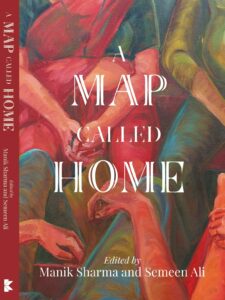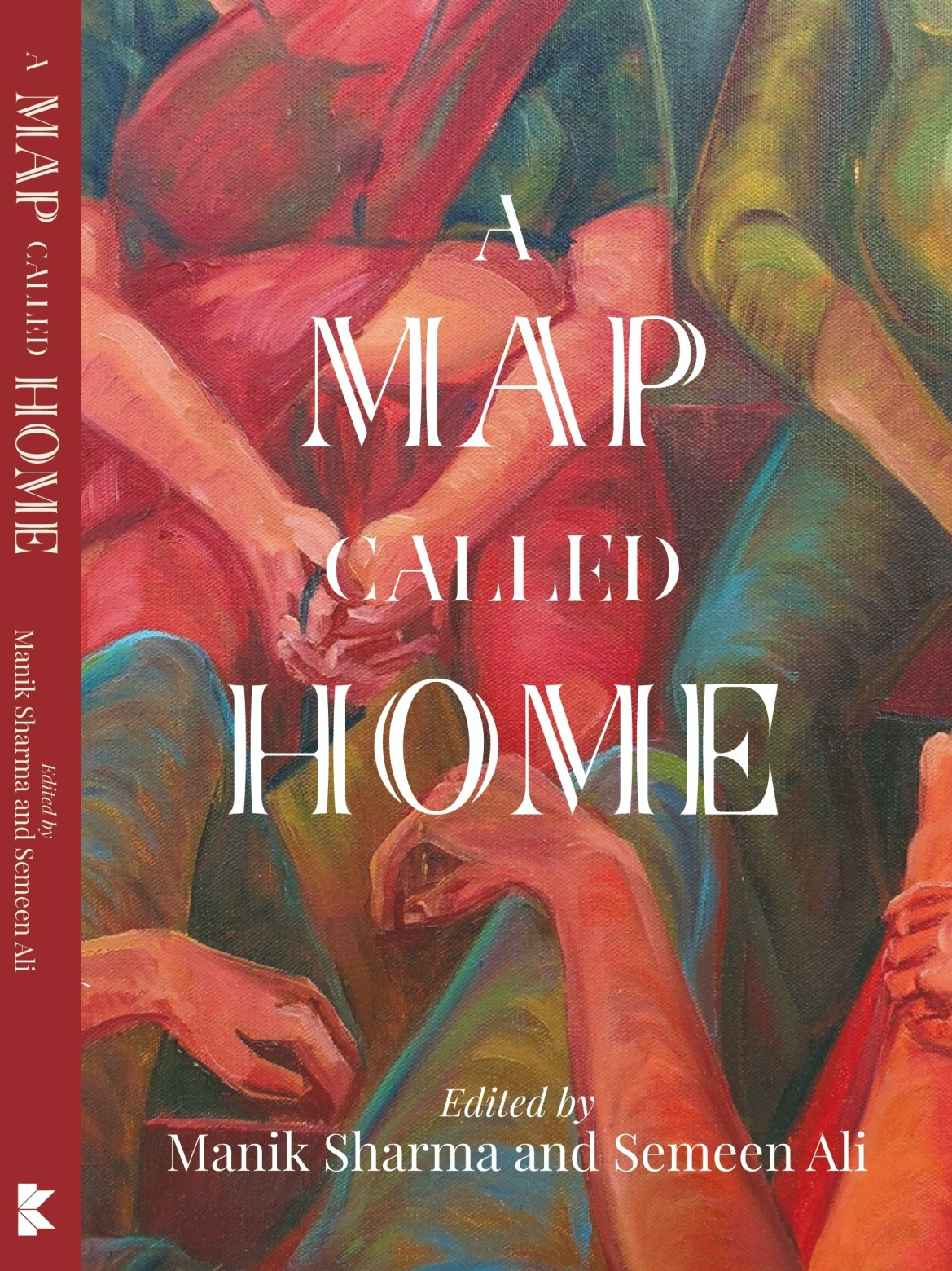
The two poems, Dal and In Exile were originally published in the poetry anthology A Map Called Home by Kitaab International, Singapore in 2018.
Dal
(i)
in the heart of the city where they thought everyone had drowned
and every monument had been burnt to the ground,
i found a boatman strumming his shikara through the chaos
paving way for the lost.
i too followed the song on his lips.
so many walked on water that day,
i was one of them.
(ii)
if you read the letter i left for you
with Gowhar—the shikarawalla[1],
if you could make out my handwriting
and sentences in broken urdu,
if you remembered what i wrote to you
in that letter scribbled behind the ishtihar[2],
tell me, what took you so long to write back?
(iii)
I feel into a slumber, my zoon[3],
while floating down to the floor of Dal.
although it is calmer underwater,
here, I couldn’t find any paper.
if it eases your soul a little,
ask Gowher[4] to drop you here—
in the middle of the lake
where the water is warmer
and more love than elsewhere.
~
In Exile
As usual, I jumped onto the 764 bus to head home from work.
A whiff of saffron from my mother’s village took hold of me
as the conductor handed me my ticket-
an eternity to Najafgarh[5].
It wasn’t the first time, though.
I had tasted apples from my orchard before,
in a dream, years ago.
My daughter was born the very next day at Palam Mod
but she wouldn’t know the taste of home as I had known.
I swear, once, I saw bobji[6] roasting duck eggs
in his kanger[7] near Dwarka Sector-Four.
More than once, the warmth of mouji’s[8] haakh-batt[9]
held my hand through the jarring Kakrola Mod.
Could I possibly return to a home that exists no more?
Could I possibly live again as a body devoid of its soul?
Could you possibly tell the driver to stop the bus?
I finally see Aishmuqam road[10]
and my heart can’t take the pain anymore.
~
Notes:
[1] Shikara is a kind of boat used in the lakes of Kashmir and the boatman is called a Shikarawalla.
[2] Ishtihar is an Urdu word for advertisement.
[3] Zoon is a Kashmiri word for Moon and also a name given to a girl child.
[4] Gowhar is the name of a Shikarawalla at Ghat no. 17 of Dal Lake.
[5] Najafgarh is a small town in the outskirts of Delhi. Several hundred refugee Kashmiri Pandit families have rebuilt their lives here after escaping the violence against the community in Kashmir since 1990s. They have been residing in this town since late 90s-early 2000s in a locality called Kashmiri Colony. I have lived in this town since I was almost seven years old. The places (Palam Mod-Dwarka Sector Four-Kakrola Mod-Najafgarh) mentioned in the poem form the bus route for DTC 764 in South-West Delhi. On this route, most of the Kashmiri fathers from the locality including mine travelled every day to and from work for almost twenty years after leaving behind their lives in Kashmir.
[6] Bobji means father in Kashmiri.
[7] Kanger or Kangri is a earthen pot supported by wickerwork. Coal is burnt inside the pot to keep warm during the harsh Kashmiri winters. It is used in several Pandit rituals during festivals and weddings.
[8] Mouji means mother in Kashmiri.
[9] Haakh-Batt literally means Haakh and rice. Haakh or Kholrabi (English) is a green leafy vegetable grown in Kashmir and consumed in every Kashmiri household almost every day.
[10] Aishmuqam Road leads to the small town of Aishmuqam diverted from the Anantnag-Pahalgam road in Kashmir. My father’s family is from here.
